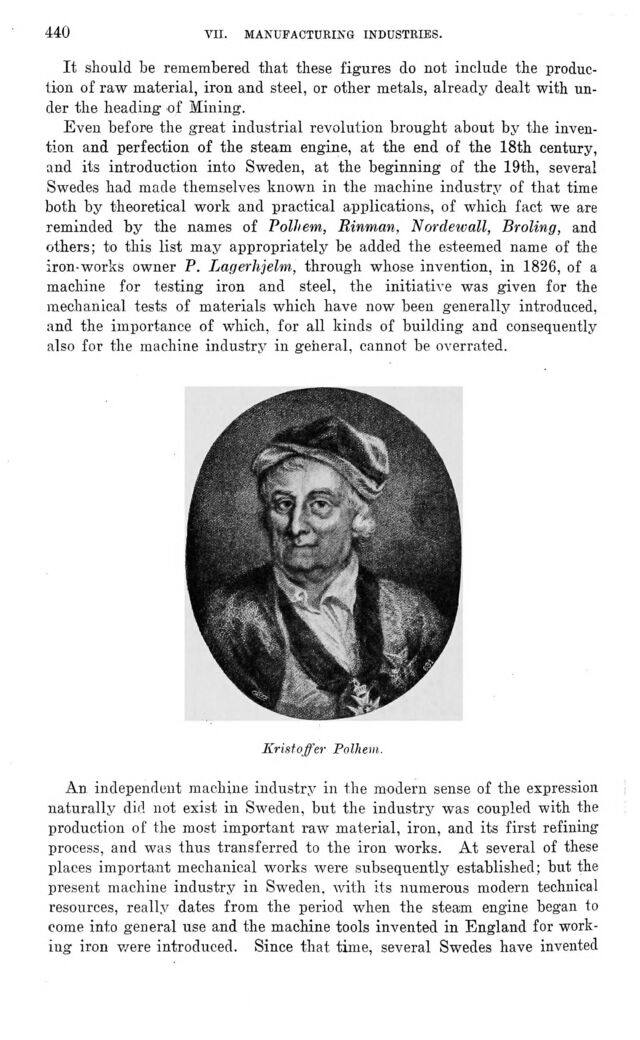
Full resolution (JPEG) - On this page / på denna sida - VII. Manufacturing Industries. Introd. by [G. Sundbärg] K. Åmark - 10. Metal and Machine Industry. By Alf. Larson

<< prev. page << föreg. sida << >> nästa sida >> next page >>
Below is the raw OCR text
from the above scanned image.
Do you see an error? Proofread the page now!
Här nedan syns maskintolkade texten från faksimilbilden ovan.
Ser du något fel? Korrekturläs sidan nu!
This page has never been proofread. / Denna sida har aldrig korrekturlästs.
440
vii. manufacturing industries.
It should be remembered that these figures do not include the
production of raw material, iron and steel, or other metals, already dealt with
under the heading of Mining.
Even before the great industrial revolution brought about by the
invention and perfection of the steam engine, at the end of the 18th century,
and its introduction into Sweden, at the beginning of the 19th, several
Swedes had made themselves known in the machine industry of that time
both by theoretical work and practical applications, of which fact we are
reminded by the names of Polhem, Rinman, Norclewall, Broling, and
others; to this list may appropriately be added the esteemed name of the
iron-works owner P. Lagerh]eim’, through whose invention, in 1826, of a
machine for testing iron and steel, the initiative was given for the
mechanical tests of materials which have now been generally introduced,
and the importance of which, for all kinds of building and consequently
also for the machine industry in general, cannot be overrated.
Kristoffer Polhem.
An independent machine industry in the modern sense of the expression
naturally did not exist in Sweden, but the industry was coupled with the
production of the most important raw material, iron, and its first refining
process, and was thus transferred to the iron works. At several of these
places important mechanical works were subsequently established; but the
present machine industry in Sweden, with its numerous modern technical
resources, really dates from the period when the steam engine began to
come into general use and the machine tools invented in England for
working iron were introduced. Since that time, several Swedes have invented
<< prev. page << föreg. sida << >> nästa sida >> next page >>